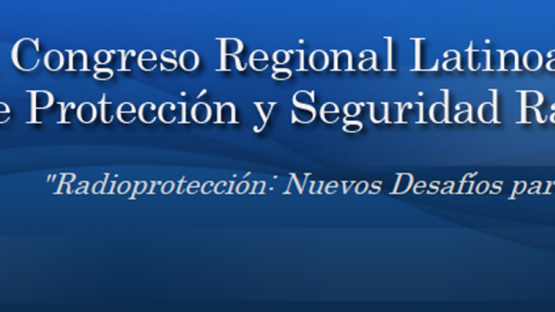Technical experts and policy-makers gather on a regular basis in the Latin American region at the Regional Congress of the International Radiation Protection Association (IRPA) to discuss emerging issues and challenges in radiation protection. Taking place from 12 to 17 April, this year's Latin American Congress aims to ensure that nuclear technologies are used in a safe manner to protect people and the environment from the risk of radiation exposure.
The X Latin American Regional Congress on nuclear and radiation safety was organized by the Argentina Radiation Protection Society (SAR) with the agreement of IRPA in collaboration with international organizations such as the IAEA / WHO / PAHO / FRALC and Argentinian organizations: Nuclear Regulatory Authority (ARN), National Atomic Energy Commission (CNEA) and Nuclear Corporation (NA-SA).These meetings provide an energetic, interactive venue for the exchange of experiences, ideas, and practical lessons cultivated by professionals engaged in the nuclear industry. Held this year at the Pontificia Universidad Católica Argentina in Buenos Aires, and organized under the slogan 'New Challenges in a Changing World,' the Congress is hosting discussions which address 16 clearly-identified thematic areas.
One of the aims of IRPA's regional meetings is the preparation and dissemination of scientific findings and follow-up recommendations which support global radiation protection-with new discoveries made each year, it's important to publicize these breakthroughs and ensure that their benefits are shared regionally. As a result, experts from the Latin American and the Caribbean region are presenting an array of scientific studies on the established thematic areas. Moreover, after a rigorous assessment process, the IAEA has selected more than 30 presentations of note, and is financing the travel and lodging of their authors. These scientific papers cover a broad range of issues, spanning radiation protection in medical applications, industry, emergencies and waste management, as well as education and training on radiation safety.
Presentations at the Congress include one given jointly by Alba Guillen of the Cuban National Centre for Nuclear Safety and Norma Carreño of the Chilean Ministry of Health, who will inform the Congress attendees of the conclusions reached and recommendations produced during a recent IAEA seminar on compliance with the provisions of the chapter of medical exposure in the new International Basic Safety Standards (BSS), issued in 2011. This seminar, which was held in Santiago, Chile from March 23-27, brought together more than 70 professionals from regulatory bodies and the health sector in the Latin America region to discuss the main challenges and existing gaps preventing the adoption of the new BSS. As a general conclusion, the seminar attendees acknowledged that a lack of human resources devoted to deliver basic regulatory functions is hindering the achievement of satisfactory levels of supervision of medical radiation generators and medical equipment containing sealed radioactive sources. More efforts are required to sensitize high-level decision-makers about the importance of sound regulatory frameworks to ensure the safe use of ionizing radiation in medical practice, including the protection of patients, workers and the public.
The ongoing work in the design of a regional technical cooperation (TC) project1on cradle-to-grave control of radioactive sources in the Great Caribbean region will also be presented at the 2015 IRPA Congress. The project proposal was tabled by Jamaica, and the proposed project is intended to help the countries of the Great Caribbean area to strengthen their current capabilities to exercise control of radioactive sources in all stages of their useful life, from production or acquisition to final disposal. The design of the project draws on the successful implementation of an on-going interregional project with similar characteristics in the Mediterranean region, which targets decision makers, regulators and waste generators simultaneously.
The diligent work of national regulatory bodies is bearing fruit-the increasingly universal implementation of the IAEA's safety standards attests to gradual but promising improvements made in the global radiation safety regime over the last decade. Through events such as the IRPA Regional Congress, which facilitates immediate dialogue and long-term networking, countries can continue to strengthen radiation protection for patients, workers, and the public.
For those attending the conference, the agenda is available here.
1 RLA/2014/021






